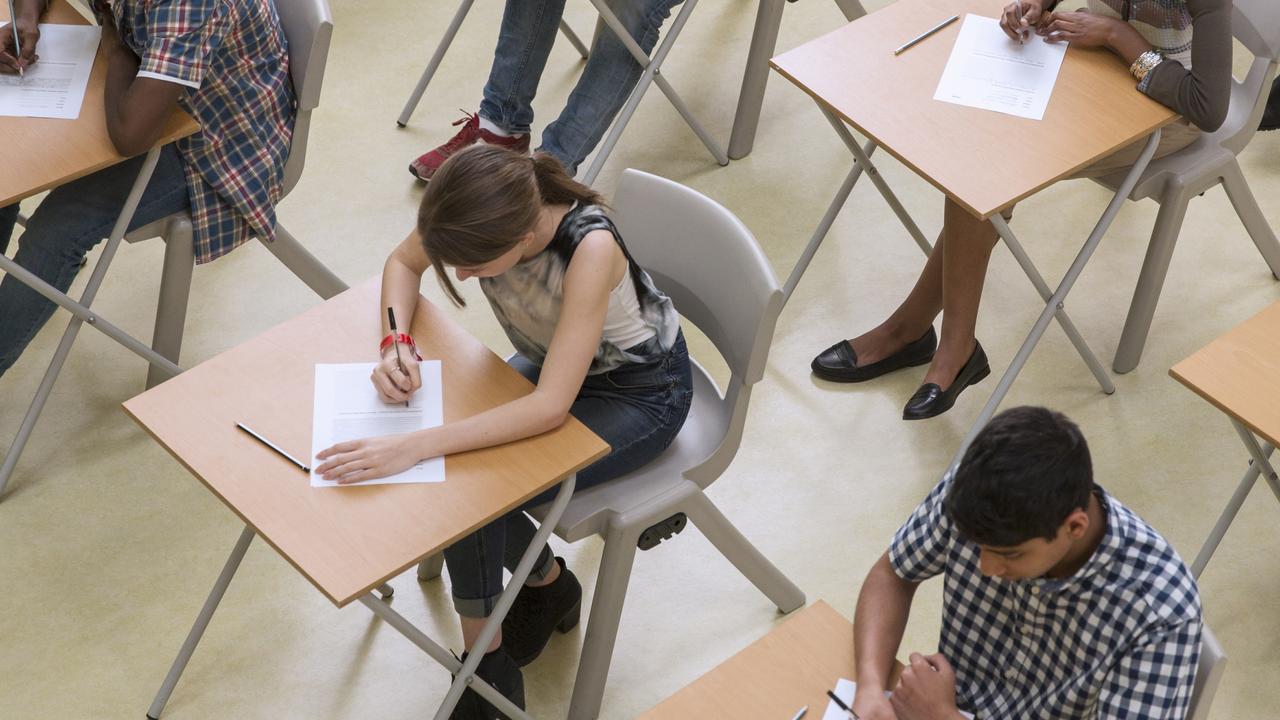Reason Aussie school kids are so disruptive in class and rude to their teachers
Aussie school kids talk back to teachers, are disruptive, prone to outbursts and have been rated among the world’s worst behaved.

Education
Don't miss out on the headlines from Education. Followed categories will be added to My News.
Violent student outbursts, their inability to sit still and a lack of respect for teachers make Australian classrooms some of the most disruptive in the world, education specialists say.
Researchers believe cultural differences between other nations and the high amount of freedom Australian students are given are other key reasons why Australia sits among the lowest international classroom behaviour rankings.
“Australia is a much more informal society, and the authority of the teacher is not automatic anymore,” Australian Catholic University School of Education senior lecturer Jonathon Sargeant said.
“Kids experience a lot of autonomy outside of school and in most classrooms, and active participation is really welcomed, but sometimes it can get out of hand and challenges can occur in managing it.”

Dr Sargeant said even “little events” such as students talking back to teachers, losing items, leaving their seats or being distracted interrupted class time, with teachers often citing a lack of support to deal with these issues as a key factor in leaving the profession.
He said the disciplinary ranking of the Organisation for Economic Co-operation and Development’s (OECD) Program for International Student Assessment (PISA), which places Australia 70th out of 77 countries, making Aussies classrooms some of the most unruly in the world, was just one snapshot of classroom management.
But, he said, it highlighted how Australian students are given a lot of independence in class, mirroring the country’s more laid back society compared to nations with high PISA outcomes such as Singapore or China where stricter teaching approaches were common.
The index ranks OECD countries by asking students to report how often distracting noises, other students’ behaviour and students refusing to listen had interrupted lessons.
Unlike most other nations, students in Australian coeducational schools were less likely to be disciplined than students in single sex schools.
Head of Deakin University’s School of Education Damian Blake said open learning spaces, which often involved collaboration across year levels and independent learning, meant teachers spent more time keeping students on track than teaching lesson content.
“The more a teacher has to address behaviour or a student’s ability to regulate their behaviour, then that’s time not spent on a task, not learning other things like literacy or mathematics,” Prof Blake said.
Prof Blake said existing teachers now had to manage student behaviour more often following remote learning during the pandemic.
“Many kids have had two years where they haven’t learned the sort of self regulation that a young person has when they’re attending school face-to-face,” he said.
One former teacher, who wished not to be named, said she felt forced to leave the sector altogether after working in secondary and specialist schools because she received little support in dealing with disengaged, and at times, physically violent students.

“I would be told the incidents were my fault, and things that happened in class while I was on my own were often downplayed,” she said.
It comes as the Senate’s Education and Employment References Committee has called for submissions for an inquiry that will probe disruption in school classrooms.
Liberal senator and Education and Employment References Committee chair Matt O’Sullivan pushed for the probe as the nation struggled with a teacher shortage.
He said it was crucial for teachers to share how they could be supported to manage students with diverse needs and behavioural challenges because it directly impacted their safety in the classroom and students’ performance.
“Some workers in the education sector have had quite negative experiences in terms of the student violence that occurs,” Mr O’Sullivan said.
“We want to make sure that we are providing kids and teachers with the best opportunity to educate and learn in a nurturing environment.”





